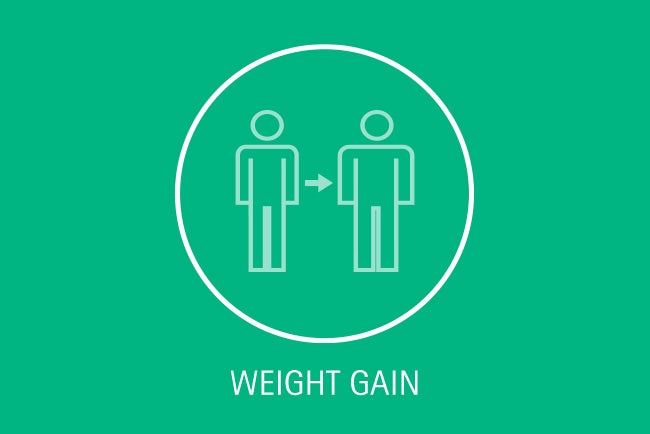Can cancer cause weight gain?
Although most people will be more likely to experience weight loss, some patients are confronted with gaining weight. This depends on the particular type of cancer but also certain treatments like hormone therapy (e.g., for breast and prostate cancer) or medication with steroids can cause weight gain. Additionally, some treatments may increase your appetite or decrease your physical activity, thus resulting in consuming more calories than your body needs. Your diet may need some adjustments to meet your daily needs.
Please note: Your coping strategy depends mainly on the individual reason for your weight gain.
The following tips only apply to specific cancer patients, especially patients receiving hormone therapy and with reduced resting energy expenditure.
If the reason for your weight gain is water retention, skip to the end of this article.
Tips to reduce weight
Reduce caloric intake
You may need to change your meals to low-fat food and a more protein- and fiber-rich diet to feel full without the additional calories. Also include vegetables and fruits to get enough vitamins. Maybe you need to switch to low-fat products and meals to reduce your caloric intake or change the size of your portions. But make sure not to reduce your micronutrient intake by checking the nutrient content. A well-balanced diet is important.
Keep a food diary
If you want to keep track of your daily eating habits, a food diary is recommended.
Fit enough for fitness?
Or do you feel like exercising each day to burn additional calories? Just ask your doctor what exercises may be appropriate for you and your treatment.
How to relieve swelling?
The tumor may also lead to water retention (ascites or edema). Even if it sounds counterintuitive, but gaining weight can mask malnutrition, such as when you experience muscle loss while also retaining water.
In some cases, your doctor may prescribe you diuretics. These can help reduce the amount of water in your tissues depending on the swelling. Also, eating less salt and an overall balanced diet can be beneficial. Often, water retention occurs in the feet, ankles and hands, so it can help to elevate your feet as much as you can and to avoid crossing your legs or standing a lot.




